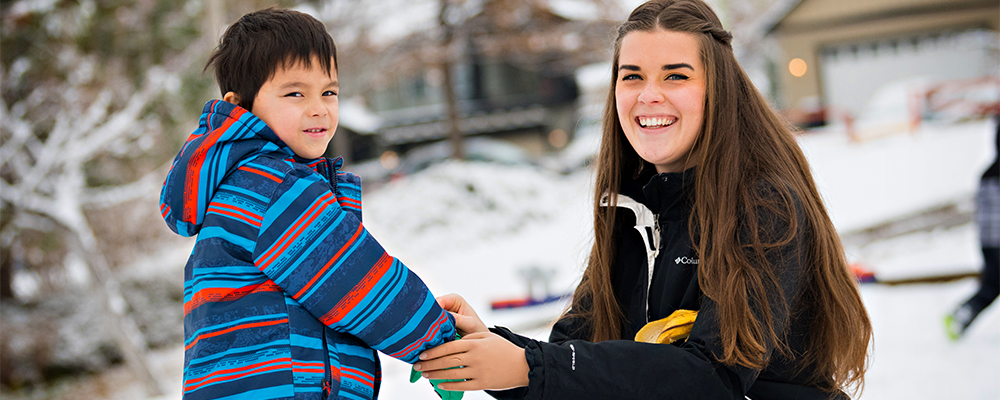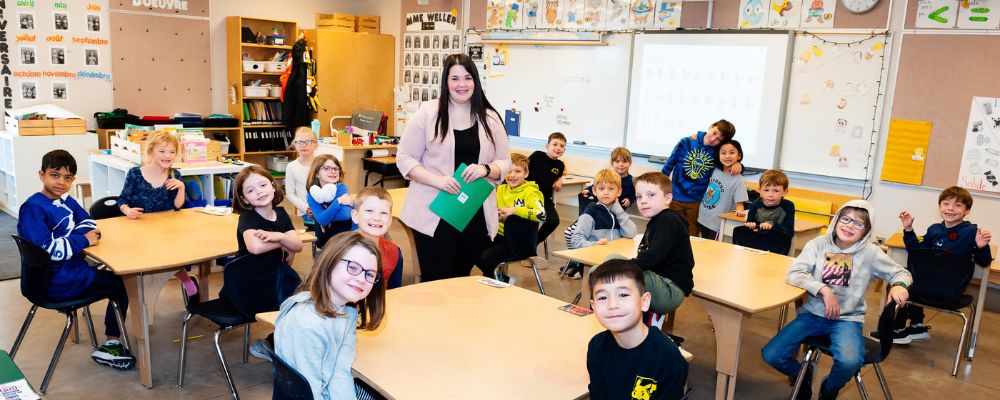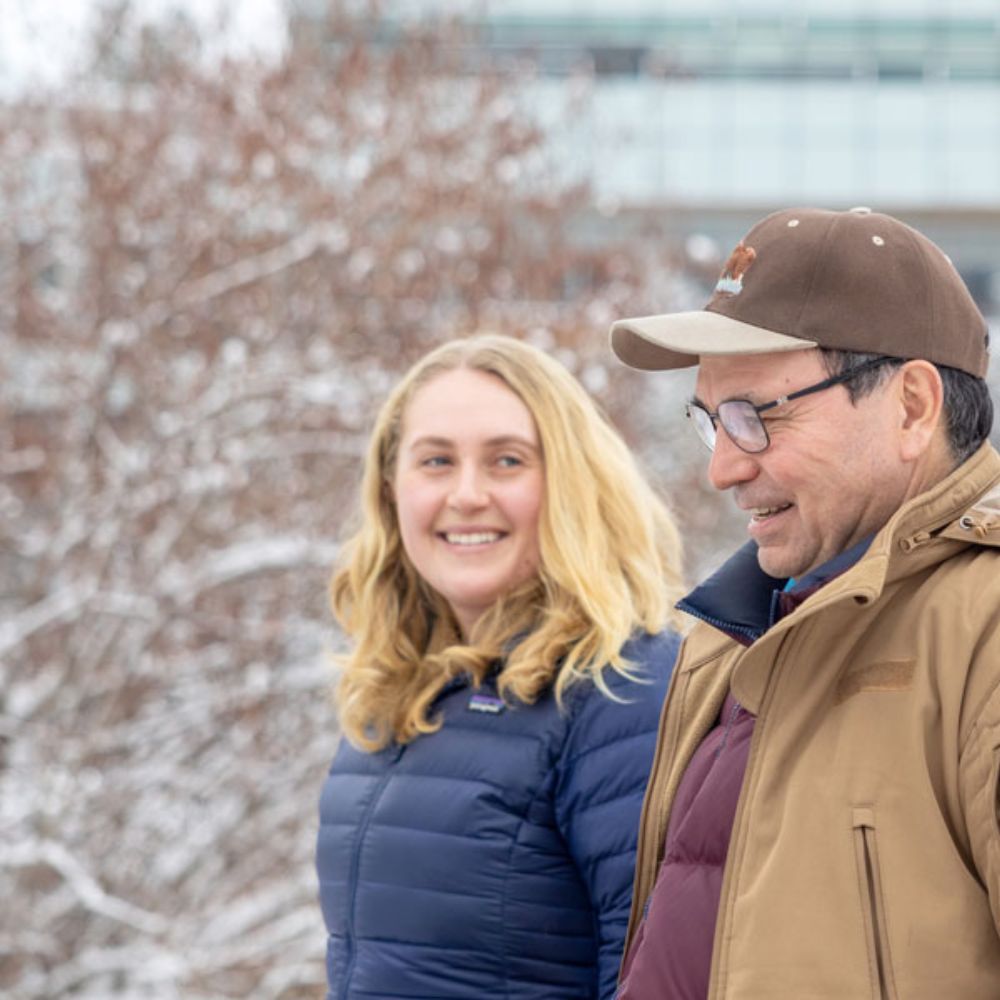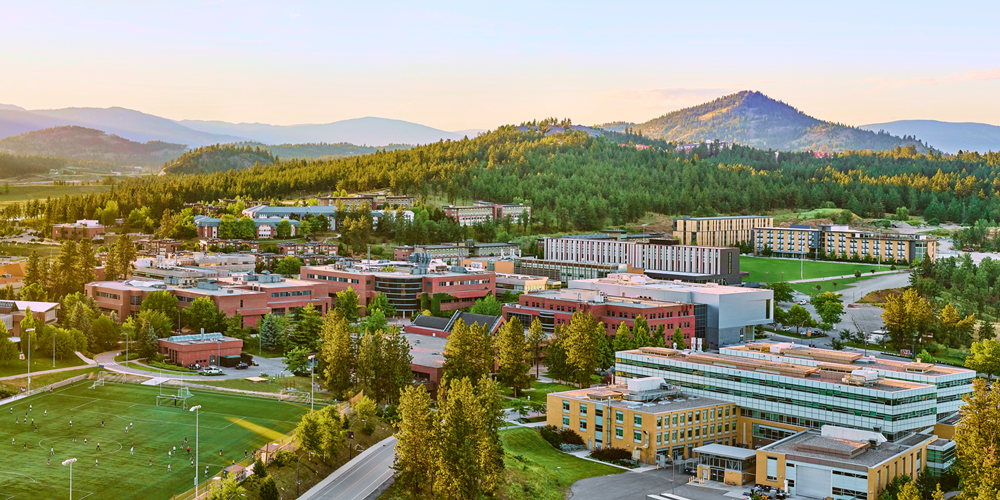To be eligible for admission to the Bachelor of Education program, students must have:
- a minimum of 75 hours of practical experience (volunteer or paid) working with young people, preferably at the age range they are proposing to teach.
- completed a four-year (minimum 120-credit) bachelor’s degree or equivalent at an accredited post-secondary institution:
- a minimum average of 65% in the last 30 credits of transferable post-secondary coursework passed, failed, and/or repeated;
- 6 credits of English or French literature and composition with a minimum average of 65%. A minimum of 3 of the 6 English or French credits must be English or French literature. The 6 credits of English or French literature and composition may be satisfied with coursework at the 100, 200, 300, and/or 400 level. Courses in creative writing, technical or business writing, or communication are not acceptable;
- 3 credits of Canadian Studies. According to the Teacher Regulation Branch: “The focus of a Canadian studies course must be on understanding the Canadian experience. The Canadian content must be central to the conceptual thesis of the course rather than existing only in exemplar supporting concepts of another academic discipline”;
- 3 credits in a laboratory science. Note: lab science courses are normally selected from the following:
-
-
- Astronomy,
- Biology/Human Anatomy and Physiology,
- Chemistry,
- Earth and Environmental Science,
- Physical Geography, and
- Physics
A 3-credit lab science is typically scheduled for three hours of lecture and two or three hours of labs per week. Courses in Computer Science are not acceptable lab science courses
- 3 credits of Mathematics.
- Statistics and Business Math courses are not accepted. EDUC 160 is an acceptable course and the equivalent to Math 160.
- 24 credits of academic coursework in any one of the following teachable subjects taught in BC public schools. Because certain subjects are not widely taught in BC secondary schools, students preparing to teach a subject marked with an asterisk (*) must have a teachable subject in at least one without an asterisk.
Note: Preference will be given to applicants with academic coursework in two teachable subjects.
Teachable subjects are:
- Biology
- Chemistry
- English
- Environmental Science
- French1
- General Science2
- Geography
- History
- Indigenous Studies
|
- Mathematics
- Music3
- Physical Education
- Physics
- Social Studies4
- Theatre3
- Visual Art3
- Business Studies*
- Computer Science*
|
- 3 credits of Canadian Studies (already required for the Teaching Adolescents stream),
- 3 credits of Geography,
- 3 credits of History, and
- 15 credits of academic coursework in one or a combination of the following disciplines:
- Anthropology
- Economics
- Geography
- History
- Political Science
- Sociology
Coursework relating to the disciplines above in the areas of Canadian Studies, Cultural Studies, Asian Studies, Gender and Women’s Studies, Indigenous Studies, Religious Studies (of a non-doctrinal nature), Classical Studies, Urban Studies, or Environmental Sciences may be considered provided an examination of the course syllabi reveals such a relationship.
The self-assessment guide contains examples of Canadian Studies, Lab Sciences and Mathematics UBCO courses that can meet the requirements.
All required coursework must be completed by April 30, prior to commencement in the program.
Information posted is from UBC’s Academic Calendar. In the event of a discrepancy, the Academic Calendar shall be held to be correct.
Student supports
Students wishing to have coursework considered in a discipline not listed, or if they’re unsure whether their course credits meet the criteria (or are transferable from another University) should consult with an Academic Advisor.
Applying
For more information on applying to the program, including the Supplemental Application Form and two Reference Reports that will need to be submitted with your application, visit Applying to Bachelor of Education.
self-assessment form
This self-assessment form can assist you in reviewing academic admission requirements for your admission pathway.
Applicants should review the BEd self-assessment guide prior to starting the form to ensure it’s filled out correctly.




